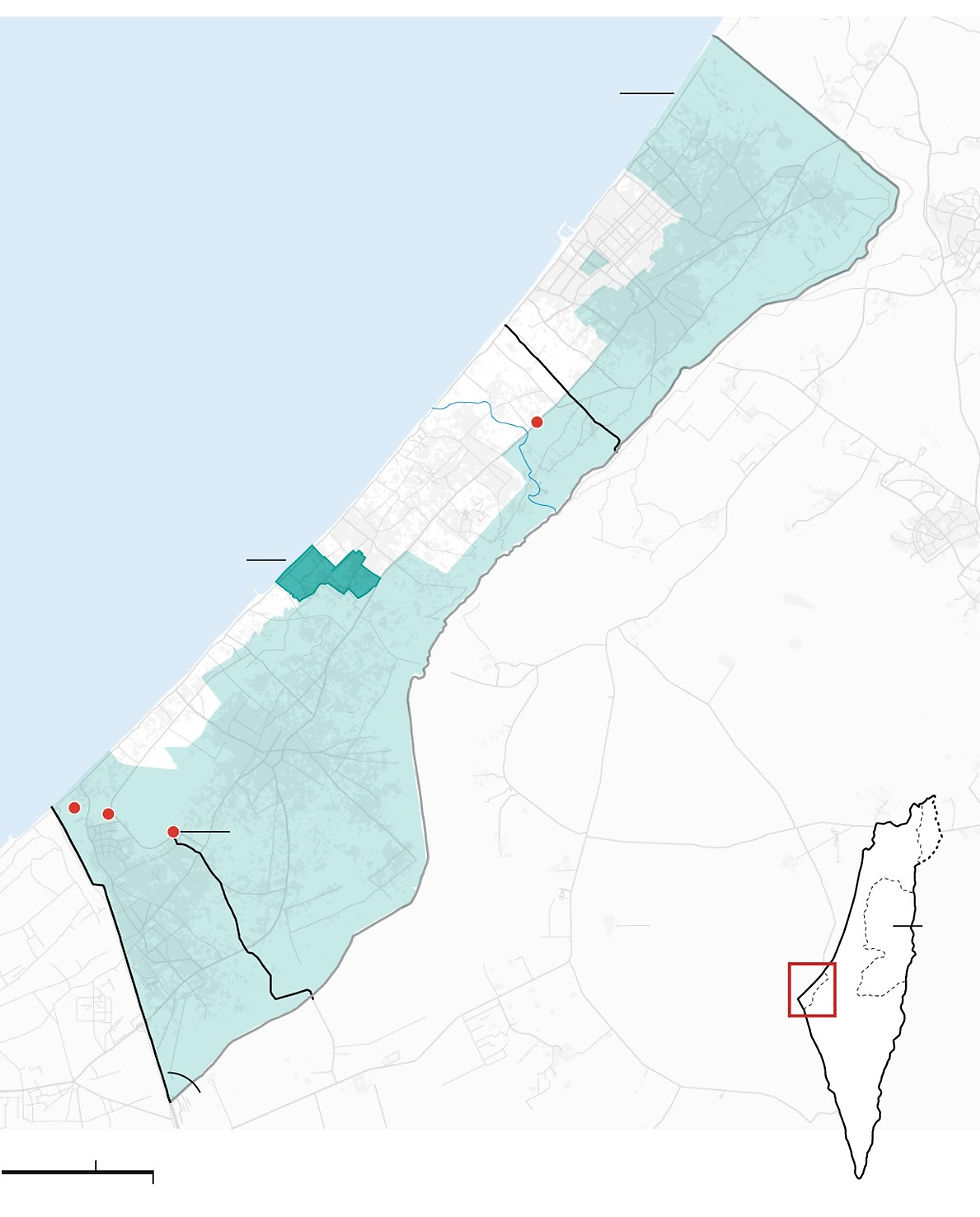Israel Launches Sweeping Air and Ground Offensive on Deir al-Balah in Central Gaza Amid Starvation Warnings
- Next News
- Jul 21, 2025
- 3 min read
Gaza, Palestine – Israel has initiated a substantial air and ground offensive in Gaza, specifically targeting Deir al-Balah, which serves as the primary hub for humanitarian efforts within the devastated Palestinian territory. This latest assault comes amidst escalating warnings of widespread starvation across the coastal strip.

The renewed military operation follows a day that saw the highest death toll in 21 months, inflicted by the Israeli military on desperate Palestinians seeking food aid. At least 85 individuals were killed on Sunday in what has become a grim, almost daily, occurrence.
The United Nations' World Food Programme (WFP) reported that the majority of those killed on Sunday had gathered near the border fence with Israel, hoping to receive flour from a UN aid convoy. They were then reportedly fired upon by Israeli tanks and snipers.
Witnesses described massive overnight airstrikes in Deir al-Balah, which had until now been the last remaining area of Gaza relatively unscathed by significant war damage. Israeli sources have indicated that the army had previously avoided ground operations there due to suspicions that Hamas might be holding hostages. At least 20 of the remaining 50 hostages held in Gaza are believed to still be alive. Israel launched its offensive despite reports in Hebrew media suggesting that Israeli officials believed Hamas was nearing an agreement on a ceasefire.
The latest Israeli assault was preceded by forced evacuation orders for an estimated 50,000 to 80,000 people in Deir al-Balah, located in the center of the Gaza Strip. These orders have brought almost 87% of the territory under displacement directives. "With this latest order, the area of Gaza under displacement orders or within Israeli-militarized zones has risen to 87.8%, leaving 2.1 million civilians squeezed into a fragmented 12% of the strip, where essential services have collapsed," stated the UN Office for the Coordination of Humanitarian Affairs (OCHA).
Highlighting the growing threat of widespread starvation, OCHA emphasized Deir al-Balah's critical importance to the struggling international aid effort, as it houses warehouses, health clinics, and a key desalination plant serving southern Gaza. "Any damage to this infrastructure will have life-threatening consequences," the agency warned. Amid escalating concern over the potential impact of these new assaults, OCHA confirmed that its local head in Gaza had decided to remain in Deir al-Balah. Tom Fletcher, the UN's Under-Secretary for Humanitarian Affairs, posted on X late Sunday night, "Just spoken to Jonathan Whittall. He’s in Deir el Balah, Gaza, with Israeli airstrikes intensifying… They are best of UN. And all of us.

The Israeli military stated that it had not yet entered the districts of Deir al-Balah subject to the evacuation order, and that it was continuing "to operate with great force to destroy the enemy’s capabilities and terrorist infrastructure in the area." Deep concern over the humanitarian situation was further underscored by doctors' claims that more than a dozen Palestinians had died from hunger in the past 24 hours.
"Nineteen people, including children, have died of hunger," Khalil al-Daqran, a spokesperson for al-Aqsa hospital in Deir al-Balah, informed the BBC. "Hospitals can no longer provide food for patients or staff, many of whom are physically unable to continue working due to extreme hunger. Hospitals cannot provide a single bottle of milk to children suffering from hunger, because all baby formula has run out from the market."
According to the WFP, the tragic killing of dozens of Palestinians seeking flour occurred after a convoy of 25 trucks carrying food assistance entered Gaza. "Shortly after passing the final checkpoint… the convoy encountered large crowds of civilians anxiously waiting to access desperately needed food supplies," the agency explained. "As the convoy approached, the surrounding crowd came under fire from Israeli tanks, snipers and other gunfire."
The WFP reiterated, "These people were simply trying to access food to feed themselves and their families on the brink of starvation," adding that the incident took place despite prior assurances from Israeli authorities that aid delivery would improve. "Shootings near humanitarian missions, convoys and food distributions must stop immediately."
The Israeli military acknowledged the shooting but maintained that it had fired "warning shots to remove an immediate threat posed to the troops." It claimed initial findings suggested the reported casualty figures were inflated and asserted that it "certainly does not intentionally target humanitarian aid trucks."
The WFP further emphasized: "Gaza’s hunger crisis has reached new levels of desperation. People are dying from lack of humanitarian assistance. Malnutrition is surging, with 90,000 women and children in urgent need of treatment. Nearly one person in three is not eating for days."









Comments